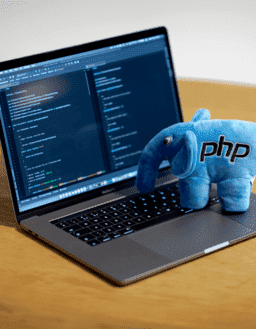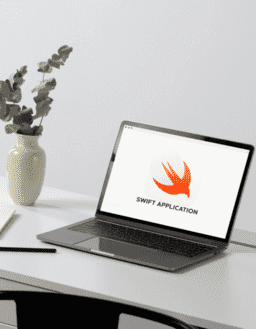
Over the last decade, there has been a significant change in the way that computing power is used to address complicated issues in a variety of industries, including manufacturing, logistics, healthcare, and finance. These shifts are altering the way businesses think about operations, strategy, and how they interact with customers. The advanced features that are currently available have gone much beyond typical processing models. They include things like automation and predictive capabilities.
Small tech startups in the United States are at a particular crossroads in this changing market. On the one hand, they are frequently more inventive, agile, and less bound by red tape. However, the infrastructure, human resources, and large sums of funds that the top companies in AI have are usually absent from these startups. This leads to a difficult conundrum: how can smaller players profit from and contribute significantly to high-computation breakthroughs without depleting scarce resources?
How these firms carefully distribute their resources holds the key to the solution. Investments in AI technology, personnel, and infrastructure must be carefully balanced for every AI business, but this is especially true for those with plans to develop unique solutions. Startups need to be proactive and strategic about how they build, partner, and grow in a field that is mostly defined by scale and specialty.
Inherent Challenges for Small Tech Startups in Advanced Computing Development
Talent Acquisition and Retention
A major concern for companies navigating the development of AI software for business is the search for talent. Particularly in fields like model engineering, system optimization, and algorithmic design, there is a much greater need for skilled AI specialists than there is supply. Due to the high compensation packages, ownership, and reputation offered by the top companies in AI, startups frequently find it difficult to compete on comparable terms. As a result, it becomes very difficult to put together teams that can advance AI development in-house.
Infrastructure and Computational Resources
Capital-intensive high-performance systems are needed for the development of machine learning and artificial intelligence. Startups have to deal with the growing expenses of high-throughput networking solutions, dedicated servers, and GPUs. Complicating matters further is the requirement to own or rent infrastructure capable of supporting intense AI software development. Investments of this kind might cause delays in product deadlines or take attention away from main offers for firms that are already saturated.
Data Management and Quality
No AI technology can function at its best without access to large amounts of organized data. It is an intensive procedure to collect high-quality datasets, clean them, and ensure that data governance principles are followed. Startups usually start from zero, in contrast to well-established AI tech companies that have proprietary repositories and historical data archives. Insufficient data volume and diversity can provide less-than-ideal outcomes, which reduces the competitiveness and resilience of models.
Research and Development Overhead
The realm of tech and AI is always changing, and it does so very quickly. To be current, you need to keep exploring new approaches and implementing changes, which demands devoted R&D resources. Meeting investor and customer expectations while investing time and resources in continuous development can be an almost difficult balance for lean businesses.
Time-to-Market Pressures
The startup ecosystem is all about speed. The opportunity to establish a niche or validate a concept is fleeting. However, it might take a while to develop sophisticated AI software for business applications domestically, especially when resources and skills are restricted. Missed chances, waning investor interest, or a loss of competitive edge are frequently the results of development delays.
The Strategic Imperative: Leveraging Outsourcing for Competitive Advantage
The path forward for many small tech startups lies in outsourcing key phases of AI development. Done strategically, outsourcing allows startups to punch above their weight by gaining immediate access to global capabilities and infrastructure.
Access to Specialized Expertise
Instead of navigating long recruitment cycles, startups can collaborate with AI development companies that offer niche proficiencies. These external teams are already seasoned in handling the complexities of machine learning and artificial intelligence, allowing startups to move faster. Whether it’s model architecture design, algorithm tuning, or data annotation, outsourcing ensures that no time is wasted in the knowledge ramp-up phase.
Cost Efficiency and Resource Optimization
Hiring in-house teams for specialized roles not only incurs salary costs but also administrative overhead, infrastructure expenses, and long onboarding times. Working with AI software companies on a project basis allows startups to pay only for what they need when they need it. This reduces fixed costs and enables core teams to concentrate on strategic execution and vision alignment.
Accelerated Development Cycles
By supplementing internal teams with outsourced talent, startups can parallelize development tasks. This shortens the path from prototype to deployment and supports faster AI transformation within products. The ability to ship early and iterate often is crucial to staying relevant in highly competitive spaces.
Scalability and Flexibility
Startups rarely operate on predictable schedules. Outsourcing enables them to scale AI development up or down depending on product life cycles, funding stages, or customer demand. This flexibility is particularly valuable when entering new verticals or exploring additional use cases without committing to long-term resource allocations.
Smart Outsourcing Strategies for Small Tech Startups in 2025
Outsourcing should not be approached as a blanket solution; it must be aligned with business goals and internal capabilities.
Focused Component Outsourcing
Startups can identify isolated components within their stack, like data preprocessing or algorithm prototyping, and delegate them to external vendors. This targeted outsourcing ensures that startups retain ownership of strategic aspects while externalizing execution-heavy tasks. It’s a particularly effective model for startups offering AI software for business where the core value lies in a unique methodology or insight.
Strategic Partnerships with Niche Providers
Some AI tech companies specialize in sub-domains like NLP, computer vision, or reinforcement learning. Partnering with such specialists gives startups access to refined capabilities and pre-trained models. These relationships can often include joint R&D, co-branded offerings, or licensing opportunities that strengthen market positioning.
Hybrid Team Models
Blending internal teams with dedicated developers from outsourcing partners can optimize both speed and continuity. Adopting agile development teams across distributed groups helps maintain productivity while promoting collaboration. This model is especially effective in reducing friction between external vendors and in-house talent.
Outcome-Based Engagements
Rather than hiring on a time-and-material basis, startups can negotiate engagements based on specific deliverables. Whether it’s a trained model, an API-ready tool, or a fully integrated feature, outcome-based contracts ensure that incentives are aligned and progress is measurable.
Emphasis on Data Governance and Security
For any AI business, especially those working with proprietary or customer-sensitive data, data protection is non-negotiable. Outsourcing partners must demonstrate compliance with relevant standards. Establishing clear data access protocols, usage rights, and retention policies from the outset is essential.
Leveraging Cloud-Based Development Environments
Cloud platforms not only reduce hardware dependency but also streamline collaboration across geographies. They enable startups to share models, datasets, and codebases with their external teams securely, facilitating faster testing, deployment, and monitoring.
Key Considerations for Successful Outsourcing Partnerships
Effective outsourcing hinges on thoughtful vendor management.
- Clear Communication and Defined Scope:
Projects should begin with clearly articulated objectives, timelines, and KPIs. Regular communication cycles help prevent scope creep and misalignment.
- Due Diligence in Vendor Selection:
Vet potential partners based on past performance, technical fluency, and understanding of your specific AI for your business goals. References, case studies, and proof-of-concept engagements can be useful vetting tools.
- Cultural Alignment and Trust:
Startups should work with vendors that reflect their values around innovation, work ethic, and transparency. Trust is the foundation for navigating the inevitable uncertainties of development work.
- Intellectual Property Protection:
Legal frameworks such as NDAs and clear IP agreements ensure that proprietary innovations remain protected and that future monetization options are preserved.
- Continuous Monitoring and Feedback:
Even with outsourcing, responsibility for final quality remains in-house. Feedback loops and checkpoints ensure that deliverables remain aligned with expectations.
Conclusion
Building effective AI services doesn’t require massive internal teams or limitless funding. Rather, it calls for smart judgment, especially when it comes to outsourcing crucial tasks. Startups can avoid several traditional obstacles, such as obtaining specialized personnel, cutting time-to-market, and strategically scaling operations, by forming smart, chosen partnerships.
For small business owners investing in AI, outsourcing is a growth strategy as much as a way to cut costs. It turns limited resources into advantages over competitors. In the future, enterprise titans won’t be the only ones influencing technology and artificial intelligence. The future will be equally defined by innovative, agile entrepreneurs who have the vision to form strategic partnerships.






































